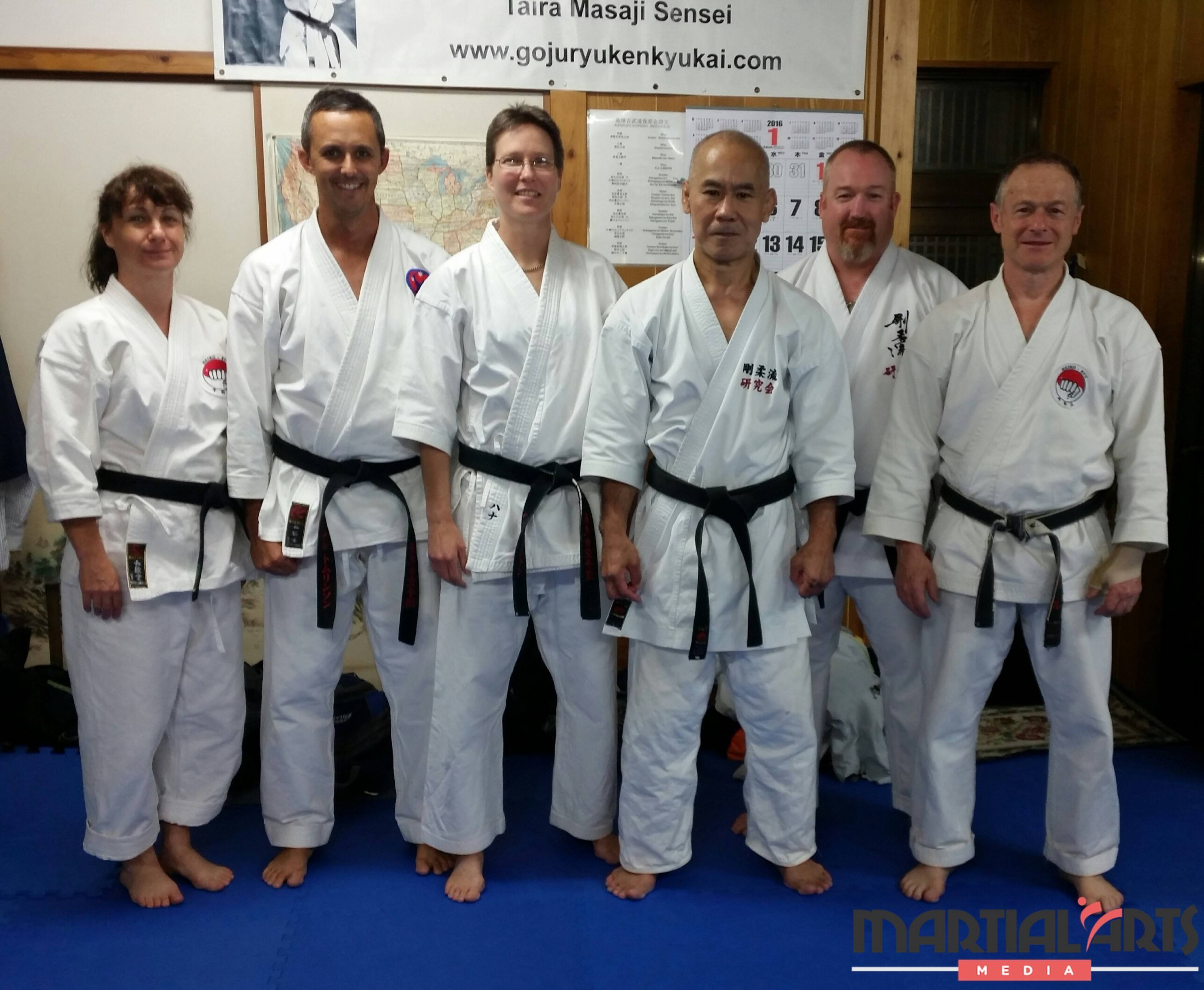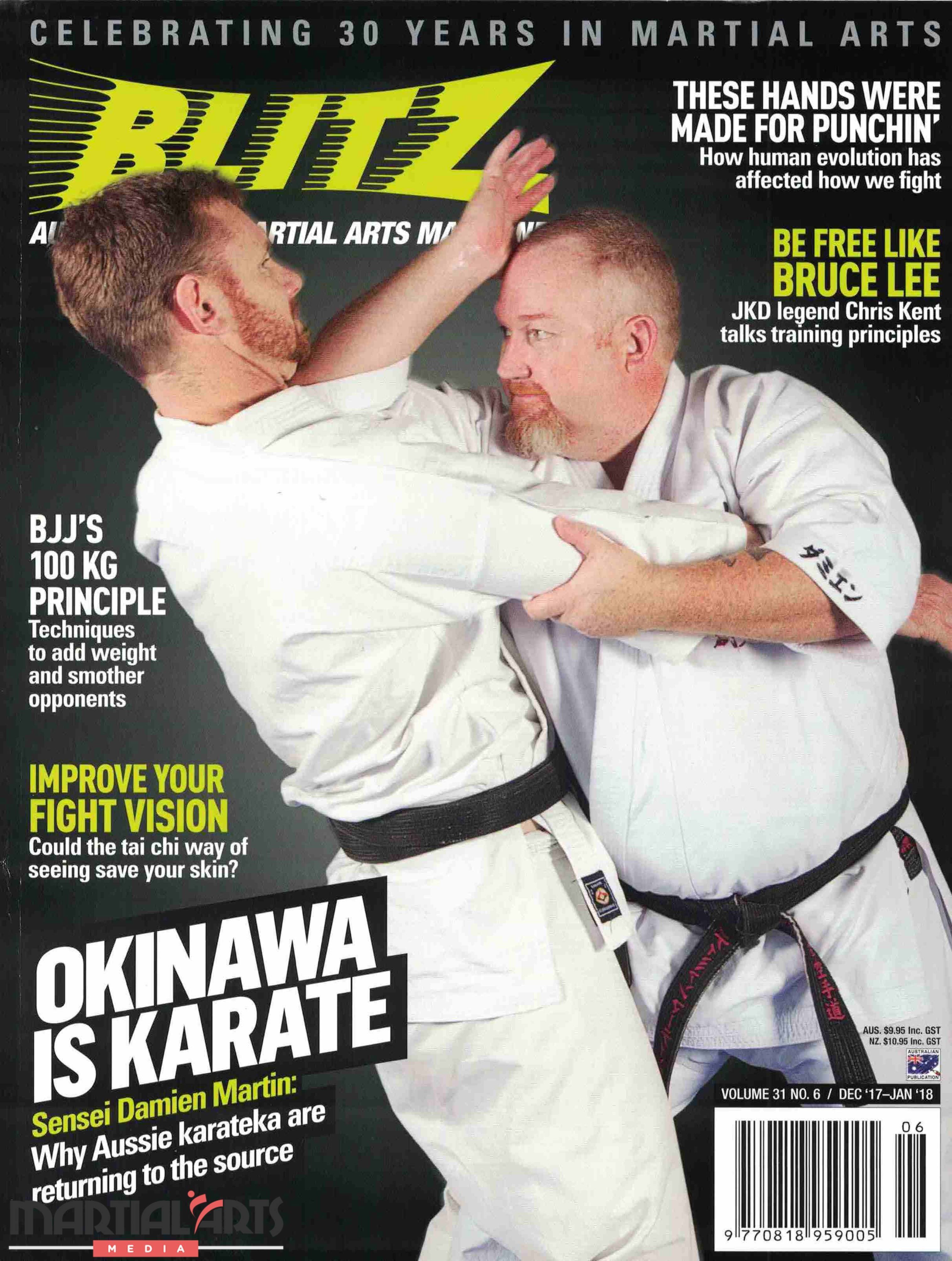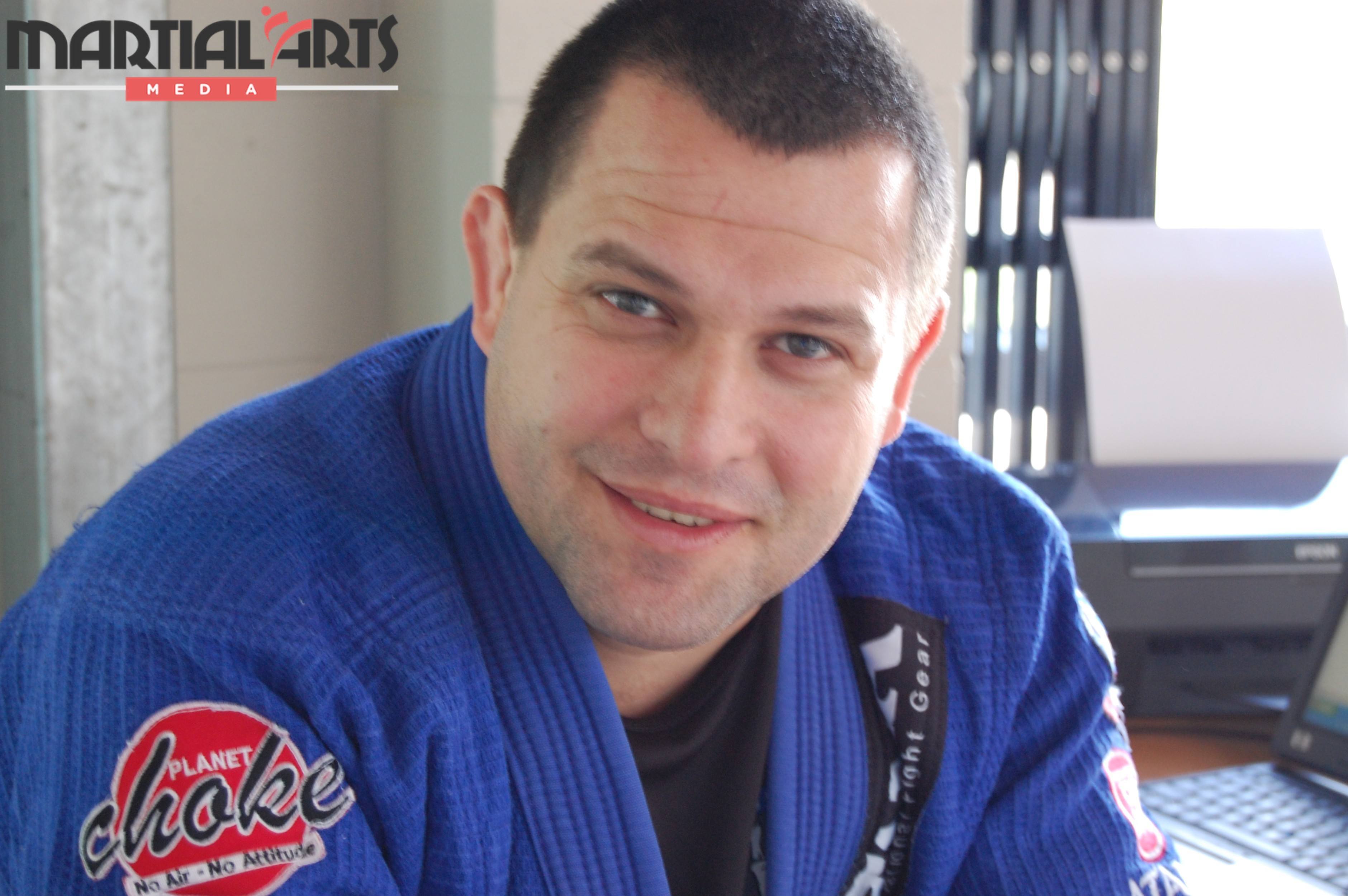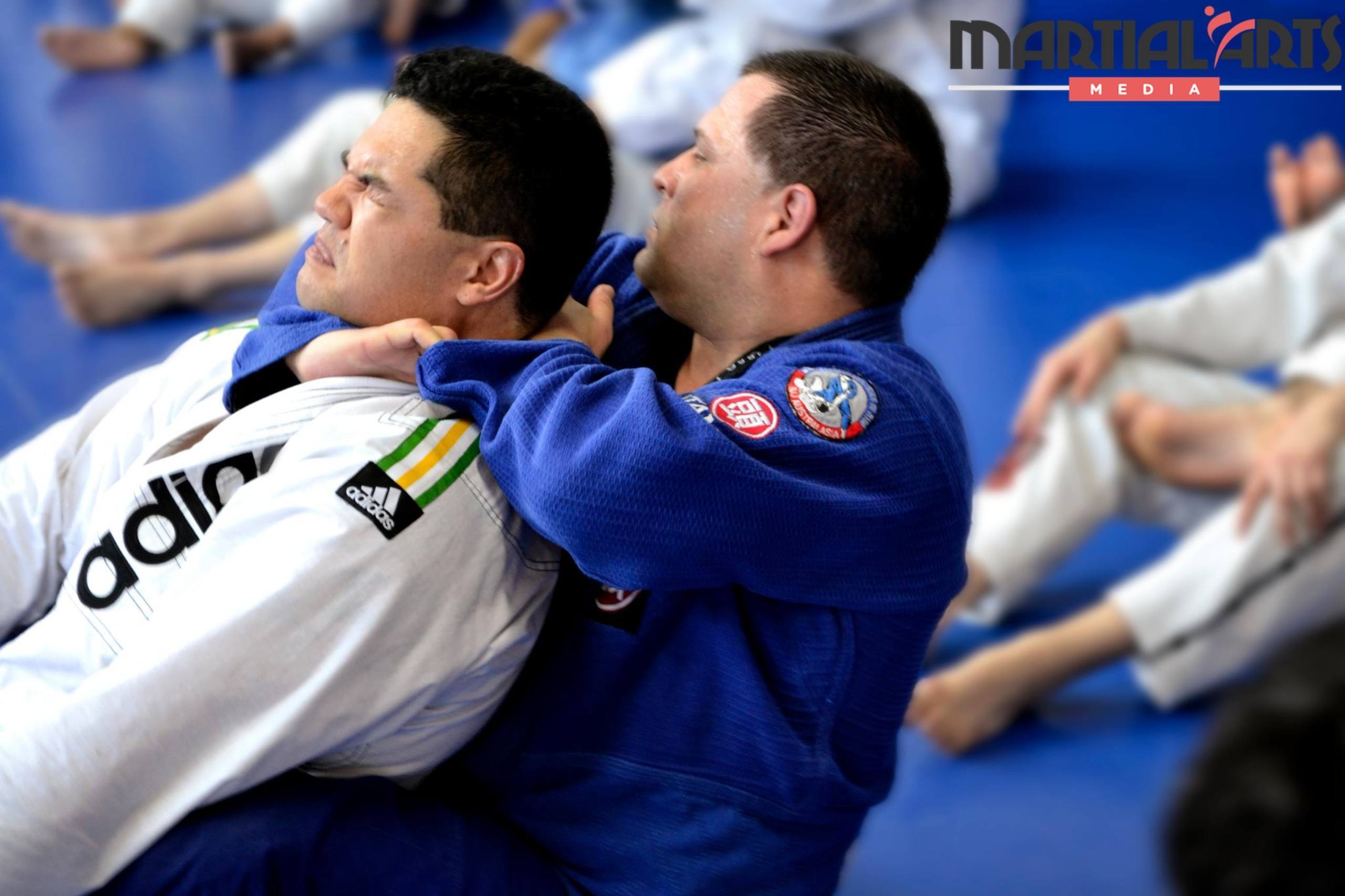After 45 years, Grandmaster Zulfi Ahmed from Bushi Ban International has discovered the real secret to martial arts business success, and it's not what you might think.
- The ‘real secret’ behind Master Zulfi’s success and longevity in the martial arts industry
- The ‘ONE’ thing that he would have done differently at the start of his career in the USA
- What keeps his passion in martial arts thriving
- The importance of attending martial arts events to meet like-minded people
- More details about Bushi Ban International, a comprehensive martial arts system that Master Zulfi founded
- And more
*Need help growing your martial arts school? Learn More Here.
TRANSCRIPTION
GEORGE: Hey this is George Fourie and welcome to another Martial Arts Media Business podcast. I have a fantastic guest with me today, all the way on the other side of the world in Texas, Master Zulfi Ahmed. How are you today Zulfi?
ZULFI: Wonderful George, thank you. Appreciate you contacting me and pleasure to be on your show.
GEORGE: Alright, awesome. So we've got, just to give this conversation a bit of context: Zulfi is the Grandmaster from Bushi Ban International, 10th degree black belt, 45 years’ experience in martial arts. There's a lot that we can obviously gain from this call. So I guess we've got to start just from the beginning, to give a bit of context: how would you, if someone has to ask you who is Zulfi Ahmed, what would be your answer?

ZULFI: Well, Zulfi Ahmed is a short little man, who was born and raised in Pakistan, a third world country and I migrated to the USA in 1985 and I've been studying martial arts since I was 9 years old, so 45-46 years in the martial arts. And I studied all over the world, I've competed, fought, trained in almost every part of the world, except Australia.
So that's where I need to be heading soon! And I have my organization, which is an international organization called Bushi Ban International. Our headquarters is in Houston Texas, Pasadena Texas to be precise. We have 9 locations in the Pasadena Greater Houston area and we have 2 more in Connecticut and few affiliates in the US and several schools, affiliates in Pakistan, Bangladesh, India, in that part of the world.
The system which I teach is called Bushi Ban, it’s my system of development. I've studied many styles throughout my years and I'm still a student of the martial arts, I consider myself an ever-going, ongoing student, everlasting student of the martial arts. In the beginning, I studied the system called Bando. Burmese Bando, it’s a system from Myanmar and it has different branches, it’s called Lethwei, which is the bare knuckle kickboxing, Banshay, which is the self-defense and weapons art, Thaing which is the animal style and classical art, Naban which is the grappling art of Burmese martial arts and then I studied wrestling, Pakistani Indian wrestling when I was young, I studied Muay Thai, Shotokan karate… many, many styles.
And after studying for about 20+ years, I developed my own system and it’s an ever evolving system and that's the brief background. I've competed all over the United States in many different circuits from point type tournaments to full contact to MMA, to grappling, to Jiu Jitsu, to kickboxing, boxing, you know. So I've had a very well rounded learning experience. I've had people from all different disciplines took turns beating me up, so I've learned a lot.
GEORGE: Alright, fantastic. So Zulfi, did all this start… because I mean, you've got your own system and you've got nine locations in the United States: how did that all start? Because you came from Pakistan: was that the goal of the immigration, or were you already that far in your career when you were based in Pakistan?
ZULFI: Great question. I've already had many thousands of students in Pakistan. I came to the USA for higher education, so I was enrolled in college and university here. I was enrolled in Bernard M. Baruch College of Business in New York City, Lexington Avenue. I had a little, mini international scholarship.
Plus, I had an immigrant status. My sister, she's a pediatric on colleges, a specialist for children and my brother in law were citizens of the United States. They sponsored me for a green card. When I came to the USA, I was already a green card holder as an immigrant, but I came here to go to school and I really didn't have much intention on staying for any longer than I needed to and going back.

But I fell in love with the country, with the people and the opportunity presented itself, because I still had thousands of students in Pakistan and the opportunity presented itself for me because martial arts is my love – it’s my passion, it’s my fire, it’s my fuel. So, of course, I wanted to be in the USA to compete with the top of the line martial artists at the time in the whole wide world. So I jumped on the competition circuit. At that time, we had sports karate more prevalent, about 34 years ago. Very few other disciplines, but very scattered.
So whatever I could find, I jumped into that arena and then I opened my own little club teaching in daycares, with little children. And then, one thing led to another and I started with a small school, went to a bigger school, bigger school, bigger school and finally, built and bought my own building of 24,000 square feet, which is the headquarters now. And as time went by, we had more schools.
At one time, we had up to 17 schools and some of those schools are still active, but we don’t license them anymore. So they chose their own path. And to make a long story short, I came with the intent of finishing education and then see where my destiny leads me and my destiny kept me here and never looked back. Don't regret it for a single day. Love it, love the people, and love the country. I love my students and I love the martial arts. I’m a blessed, blessed human being.
GEORGE: Fantastic. I always love hearing an expat success story, as I'm from South Africa and I'm living in Perth. It’s always good to hear people who succeed. I call it the expat advantage because expats normally go and go with a different mission, because they've just got to make it work.
ZULFI: We have to make it work.
GEORGE: Yeah. So I want to learn from you: how did you go from… we always talk on the show about schools, and then marketing and so forth: but I think the topic we don’t explore that much is, how do you take that next jump? You've created this school and you've got a business: how do you scale to the next level that you can open the next locations and I guess in a way start removing, taking a step back and letting other people lead?
ZULFI: So, you know, if a person has a deep belief, deep conviction, deep faith, deep passion, deep fire, you know, of what you do, you love, and then you keep doing that, things happen organically and things happen with planning. So you must let your destiny lead you and don't question it. You must be led by your passion to a point where you are willing and ready to sacrifice and I'm a big believer in fate and destiny and karma and you know, recreate your own luck.
So what happens if one is passionate about and they believe strong enough and they're resilient and they don't give up and they are not greedy in the process. Then automatically, the universe opens doors. Sometimes, people come into your life because you attracted them and sometimes you go into people’s lives who you attracted. And they attract you.
And as long as you are aware of where your endpoint needs to be, things will manifest themselves as long as you are true, honest, hardworking and you are committed to your goals and dreams – you've got to have a dream. Then, things will happen. Don't doubt, things will happen.
 When I came here, I was passionate about my martial arts. Schooling was my parents’ directive to me more than my own, even though schooling is very important and I did schooling and I recommend everybody does get their schooling and degree, because that's your plan A.
When I came here, I was passionate about my martial arts. Schooling was my parents’ directive to me more than my own, even though schooling is very important and I did schooling and I recommend everybody does get their schooling and degree, because that's your plan A.
But fortunately, my plan B became my plan A, because I'm born to be a martial artist, my calling in life is martial arts. And I've known that since I was an orange belt since I was 9 years old. That this was what I wanted to do throughout the rest of my life. And that comes through my mentors, my teachers who inspired me to live a lifestyle of martial arts.
And then, being at the right time, right place with the right people, with the right mission, right purpose, opens doors. So I wish I could give you a more strategic, tactical answer: do this, do this, do this, do this, but to me, the best answer is just to follow your dreams and don't give up and don't quit and keep believing. And the right things will happen if you have the right intent. If your intent is good, if your intent is sincere, the doors will open yourself, just don't give up. That’s the answer.
GEORGE: Yeah, that's the better answer, because it’s always, you know, there's tactical change and it could be different for everyone and I think everyone has different strengths in what tactical things they need to do and not do. So yes, that's the better answer, thanks, Zulfi. So, at which point – I’ll get to this question in a minute, but when you feel martial arts school owners are going wrong in their path?
I mean, we've spoken about following their dreams and setting that intention and goals, but with the martial arts industry just being at a big booming stage. Where do you feel the school owners are missing the boat on their journey, with their schools?
ZULFI: I can't answer for the martial arts individual industry, I speak a lot in many different forums with the Martial Arts Industry Association, Educational Funding Company, MA1st. BTW, I’ll be speaking to our mutual friends, Fred DePalma’s event in April. I think it’s 26th-27th-28th if I'm not mistaken.
GEORGE: That's correct.
ZULFI: Fred is a great friend of mine and you know, I have the utmost respect for him and I’ll be speaking at his event. I’ll be speaking at many other events, EFC event in England also in April, the week before that I’ll be in the UK, speaking at the EFC, European Convention. So, basically, what I want to say, the answer is, you know the phases of learning and maturity is… the four phases of learning are unconscious incompetence, conscious incompetence, conscious competence and unconscious competence.
So, you don't know what you don't know and that's where a lot of martial arts school owners, there’s so much out there, they just don't know what they don't know, you know? I still don't know what a lot of things are about. Then there are martial artists who know that they don't know, which is a great stage to be at. And then there are martial artists who know that they don't know and they want to pursue that, which is wonderful, and that comes to a point where you know what you know, and then you don't know what you know because it becomes second nature.

So I believe our industry is going through that second and third phase. We have a lot of martial artists, they don’t know that there's information, knowledge of business development, personal development, martial arts entrepreneurship exists, you know? I’ll give you an example: tomorrow I have a mastermind here in Texas, I've got Ken Pankiewicz, and he’s travelled all the way from the UK. He's got five schools there, I've got people coming from all over and I've got local martial arts schools owners coming in, who have never been to a martial arts business development event.
They just didn't know that something like this existed. So I think once you figure out that there is information there that could prove us and we take steps to go out and learn and implementation is the key. Everybody learns it, everybody knows it, everybody sits and takes notes, but can you go and implement?
So I think one thing which martial artists in this time and age, there's one school, one group, they don't know that we even exist, martial arts business educators. The second group is that they re information junkies: they love information, but they don't do anything with that. The third group is, they go and they take what fits in the model and they implement it right away, like my friend Ken, Ken is sitting here. He is soaking up and implementing. Then there are guys who already have implemented, they just need reassurance. They need to know they're doing it right; you know?
I go to these events to learn and I go to these events, let me give you a very honest answer: I go to these events to be humbled. When I see people who are doing much better than I am, it brings me back down to earth, because we are all kings in our own little kingdom, but when we go outside and we see, wow! These guys are kicking butts and taking names and they are way beyond my aptitude and it humbles me. And that humbleness makes me come back and say, hey, I thought I was this, you know, bad ass – excuse my French. But I've got a lot of work to do.
So to me, it humbles me, because you know, I believe most of us, me included, we are driven by ego. Martial artists have big egos. So once we let go of egos, we will come back to earth and we will do what we need to do to prove ourselves. So I don't know if that answers your question, but that's my feeling for it.
GEORGE: I love it, I love it, that’s fantastic. So, Zulfi, there’s a lot of unconscious competence that I think I can't tap into and it’s hard for me to actually get those questions, because I think you’ve got so much knowledge over 45 years, that things are common knowledge to you, it might be hard to extract all that information from you. So let’s put it this way: if you had to start this journey from the beginning, what do you think you would do different, or which paths would you go on? What would you change?
ZULFI: Great question. I would get myself a mentor ASAP. A mentor, or a group of mentors, or I would, these times and days are not times and days of lone rangers. Those days are gone. You have to be part of a bigger mission, bigger vision, bigger purpose, bigger group, bigger entity than yourself. Because the student is more aware of what the martial art is and it represents and represents and can benefit now than 30 years ago.
30 years ago, as a lone ranger, I could have hundreds of students, but now as a lone ranger, I can not compete with a stronger group of people who are united and they have more strength than you. So I would utilize, see, a lot of this, where I’m at today, I did a lot on my own trial and error and failures, more failures than victories. And then, when I found some mentors, one of my great mentors is the great grandmaster Dr. Maung Gyi. He is 87 years old and he is the father of American Bando Association. He mentored me, guided me and that was a blessing to me. Plus, other mentors in other fields.
So you've got to get yourself somebody who you respect and you feel can share with you through experience. Anybody can read a book and say what's in the book, but the years of knowledge, the experience, cannot be replaced by what you read in a book, or what you buy in a $2.99 program. It has to be lived and they have to live through trial and error, through victory and failure and that's the mentor I would get immediately if I could find one. If I could have someone who… that's the first thing I would do.
Because when I came to America, my teacher was 10000 miles away. I learned through trial and error and I learned to get beaten up. I would go to these tournaments, which I had totally different, I came from a different background and I went to do Texas style point karate with groin kicks who I love and I got beaten up every weekend.
But I didn't give up, I kept going back and going back and going back, so I learned through real failure and then, you know, if I would have had a coach, mentor, teacher in the business, I would have been maybe ten steps ahead. You know? So that's what I would recommend everybody: to get yourself a group of great people, a mentor. Build a little sphere of influence, build your own inner circle of friends and mentors, of like-minded pursuit, or get somebody who you believe can guide you. That's what I would do.
GEORGE: Fantastic. Zulfi, I'm just looking at the time and we’re running close, I know you've got another appointment to get to. One question just behind this: at what point did you decide to start your own style and to start your own program?
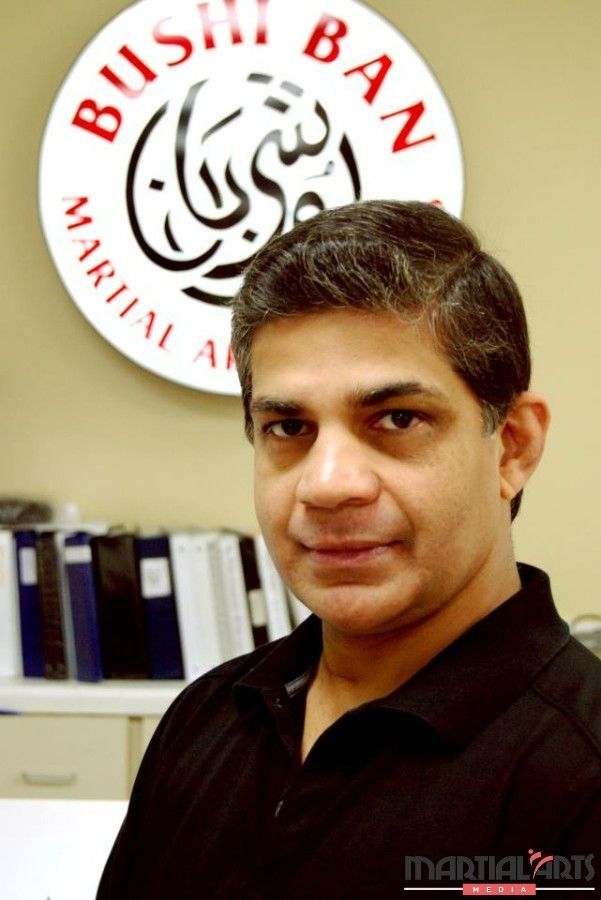 ZULFI: The decision to start my style was when I was living in Pakistan and I saw a rich cultural heritage of martial arts in Pakistan, which comes from India, Pakistan and that region. And I was training in a foreign style Burmese style. And I trained in Japanese style, I trained in Korean style, I trained in Thai style. And as a young person, I loved it.
ZULFI: The decision to start my style was when I was living in Pakistan and I saw a rich cultural heritage of martial arts in Pakistan, which comes from India, Pakistan and that region. And I was training in a foreign style Burmese style. And I trained in Japanese style, I trained in Korean style, I trained in Thai style. And as a young person, I loved it.
I still love training in every style, Brazilian, Thai, and Mongolian – every style. But I saw that there was really nothing which was representing the rich cultural martial arts of the region where I came from, on an international level. Plus, I saw a gap of modern approach in those martial arts.
So you know, some people are creative by nature, some people are practical by nature, so I feel that my personal creative invocation, creative longing made me realize that I needed something. Number one, to fulfil my needs in what I was getting through that system was great, still great, I still train with it.
But there was something I wanted to improve and enhance. And when I saw the other system, it was like pieces of a puzzle. So I was making my own puzzle with different pieces and putting my puzzle together. And one of the key reasons for putting the puzzle together was at that time, the national pride that I wanted, a system which could be internationally recognized, which hails from that region of the world.
And then, I wanted to give back to that part of the world a more modern approach to what was going on in the other parts of the world where I was traveling, to Hong Kong, the Philippines, Thailand, Malaysia, Singapore, Sri Lanka, Nepal, India, when I was living in Pakistan and I was accumulating this information and putting my pieces together and that was done on a selfish basis and it grew into a wonderful system called Bushi Ban. And my students loved it and it became a, we call it a supra, multi-dimensional system.
It was not a linear system, like Taekwondo might be linear, just kicks, but Bushi ban, in those days, before MMA, we were – and I'm not taking any credit, but we were incorporating wrestling with Muay Thai. We were incorporating karate with point karate, with kickboxing and we were incorporating Pakistani wrestling with point karate, takedowns. We were incorporating Naban, Burmese Naban with Taekwondo.
So it was evolving into what is MMA now, it was kind of evolving in that manner and it was becoming a multidimensional system and what I used to call it, I used to say, this is the tradition of the future. Traditional martial arts are the future, one day, people will adapt this martial art because it has the past and the future combined together in a multidimensional way and we used to say, you know, modern practices, traditional wisdom, and ancient wisdom, compiled together.
Of course, inspired by the late great Bruce Lee's thinking, as a child, as a young person I was reading that, and my own personal longing. So Bushi Ban became born, was born. And it keeps evolving because I'm still evolving. I’m the founder, I'm the creator and I’m still evolving and my goal is to keep bringing that evolution and innovation and creation into my students’ lives, wherever they are.
GEORGE: I love that, awesome. Master Zulfi, it’s been awesome speaking to you and I'm looking forward to meeting you in San Diego this year, so depending on when you're watching this video. So that's 26th to 28th I believe in San Diego at The Main Event. And Master Zulfi, where else can people find out more about you and your networking and everything that you have going on?
ZULFI: I would love to connect with people, I love people and I'm honoured when somebody calls me, I like to share. So if anybody who's hearing this, give me a shout out. You can email me at masterzulfi@gmail.com, or bushiban-hq@juno.com.
And if you don't mind, if I can plug in, put a plugin for an event we’re doing in Thailand, I've been hosting what we call the World Martial Arts Summit for the past two years and it’s in conjunction with the Thai martial arts games and Thai festival, which starts on the 12th of March this year and goes to the 18th of March. So in the World Martial Arts Summit, which I run that aspect, we have a sports karate tournament, we have a grappling tournament, No Gi grappling tournament.

We have a mastermind, where people like Fred DePalma, you know, Ken Pankiewicz, Hakan Manav, myself, Master Kazi Qais, Master Jeff Barley… many, many prominent martial artists from all over the world, from the USA, from India, from Australia, from the UK, from Thailand, from Malaysia, from Pakistan, from Bangladesh – many, many countries, they'll be there and we’ll be brainstorming and different martial arts business development, that's a mastermind.
We also have the Asia-Pacific Martial Arts Hall of Fame. It’s an organization to which we want to recognize top performers from Asia-Pacific region. So I would love to hear from anybody who would like to go to the event and you can log onto www.worldmartialartssummit.com and I’ll be in Bangkok Thailand on the 7th of March, till the 19th of March.
Then, there's another event I will be teaching, I'm the keynote speaker at the EFC, UK EFC event, which is, I think 20th and the 21st of April, that's in UK England. And then I’ll be at the MA1st Kyoshi Fred DePalma’s event in San Diego right after that. So, love to shake hands with all of you, love to see you there and looking forward to sharing our information with you all.
GEORGE: Fantastic. Master Zulfi, I’ll have all those links in the transcript of this interview as well. It’s been great to connect with you, all the way to the other side of the world and looking forward to meeting you in person.
ZULFI: Yes sir, my pleasure. Thank you, George, pleasure meeting you and I look forward to meeting you in person as well.
GEORGE: Thank you, speak soon.
ZULFI: Bye.
GEORGE: Cheers.
*Need help growing your martial arts school? Learn More Here.
Enjoyed the show? Get more martial arts business tips when you subscribe on iTunes for iPhone or Stitcher Radio for Android devices.



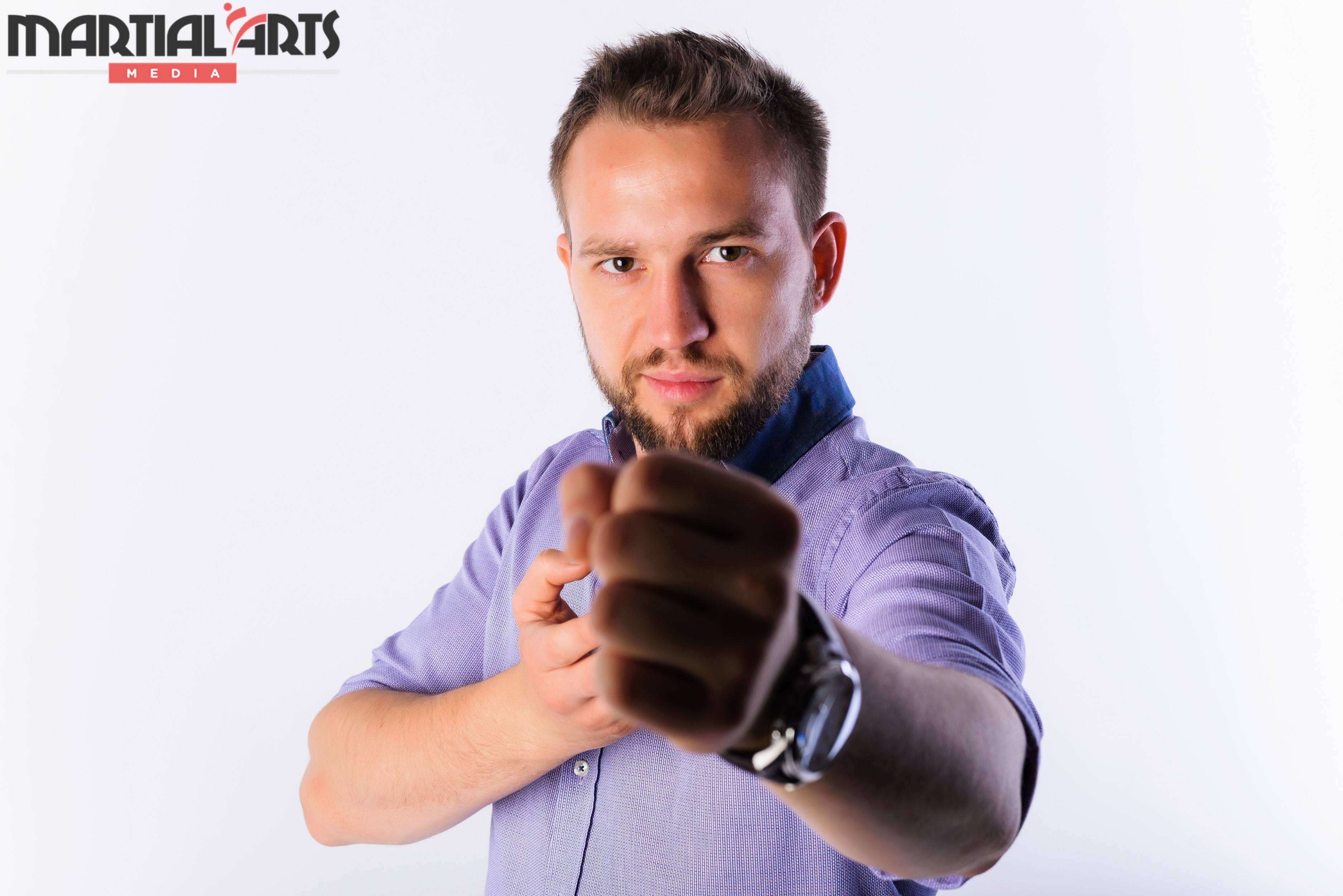
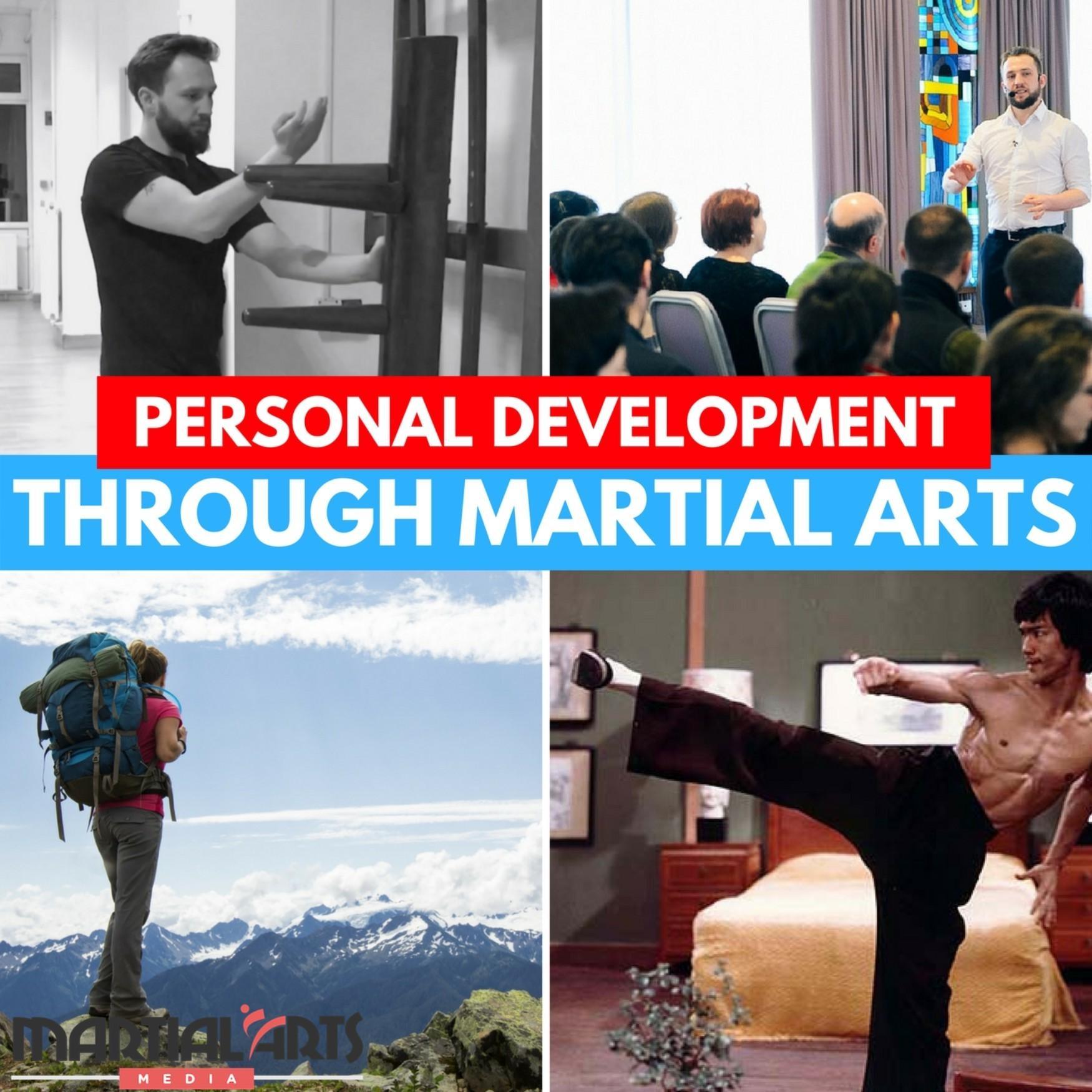
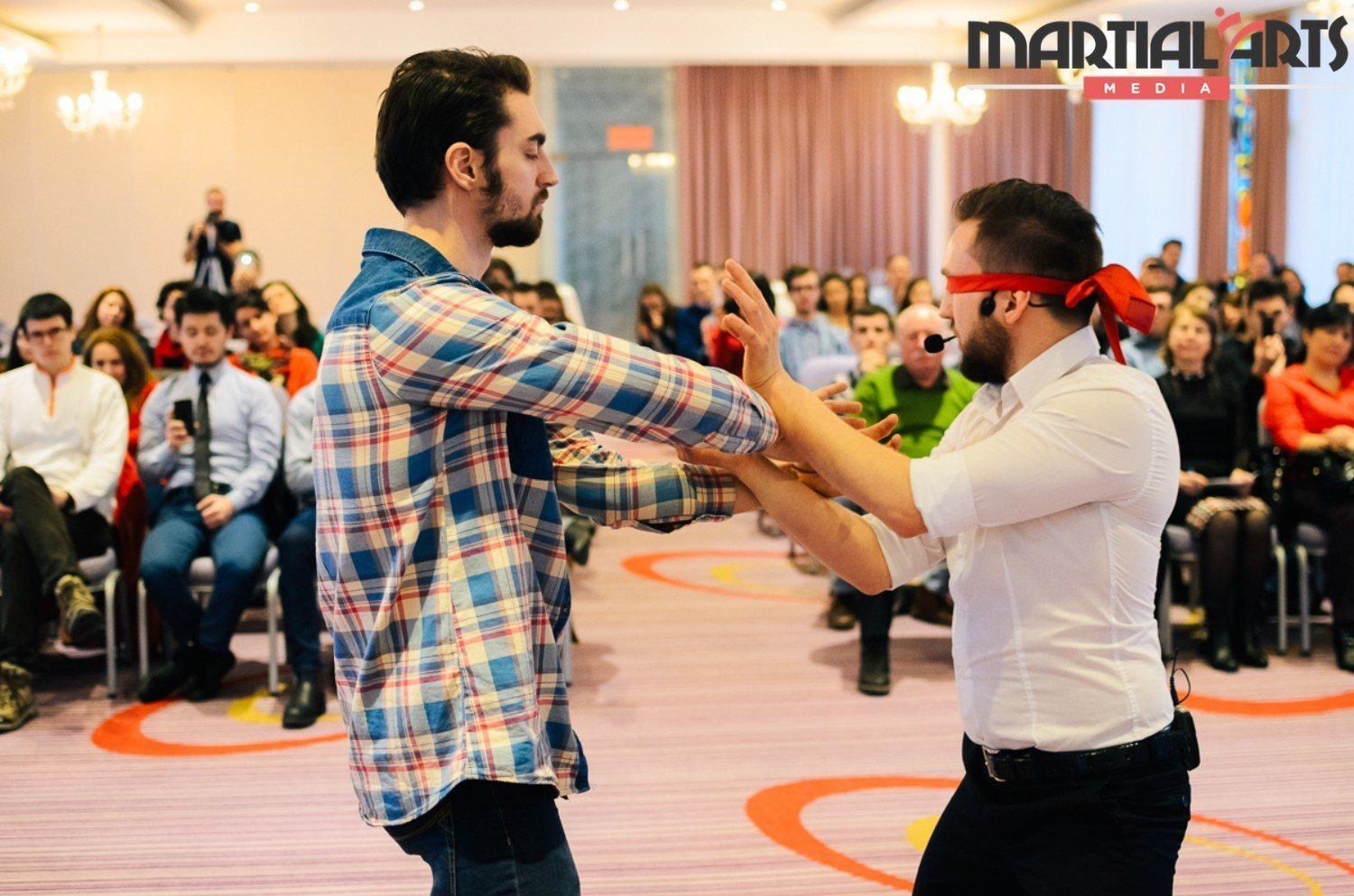
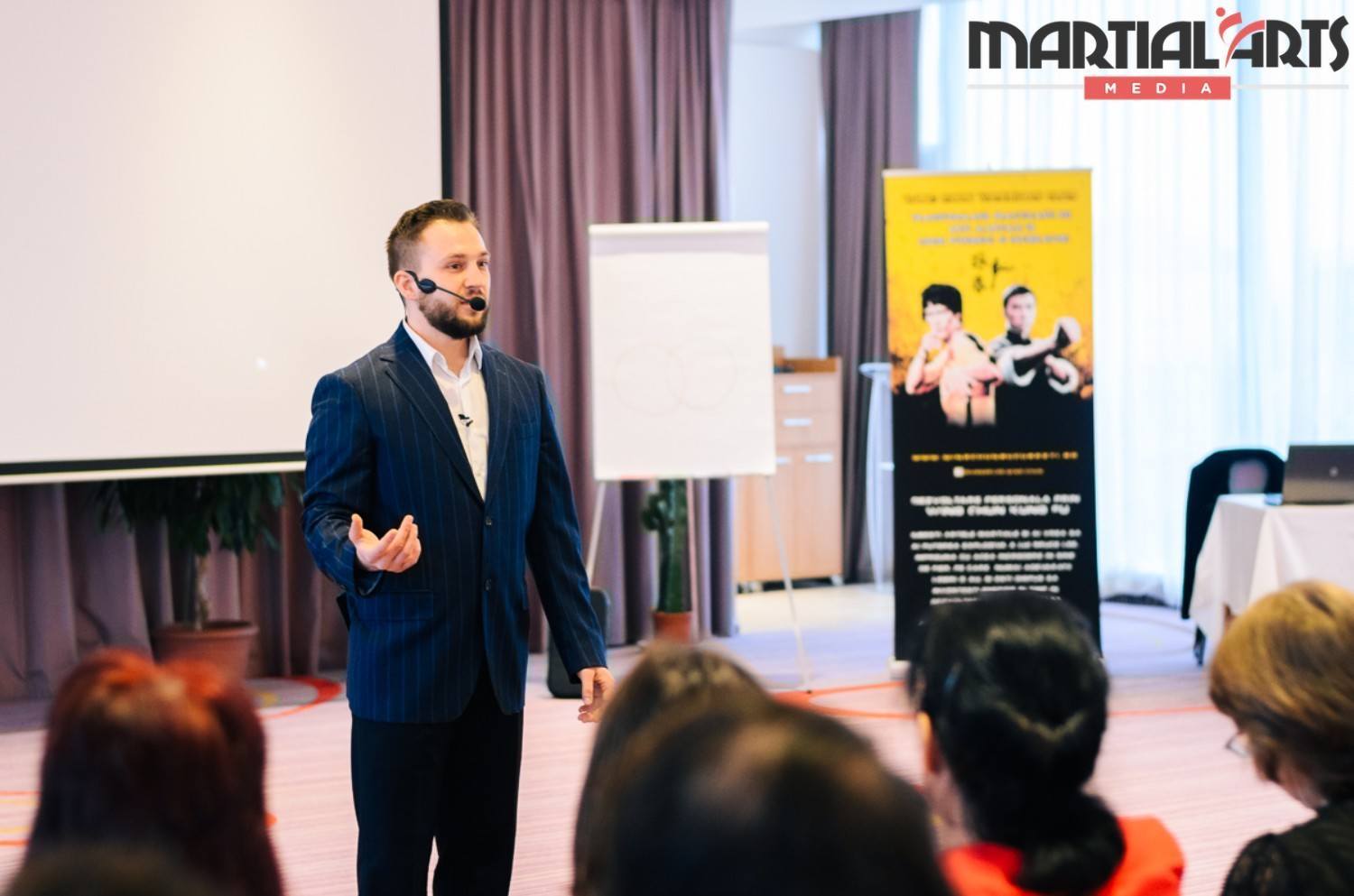
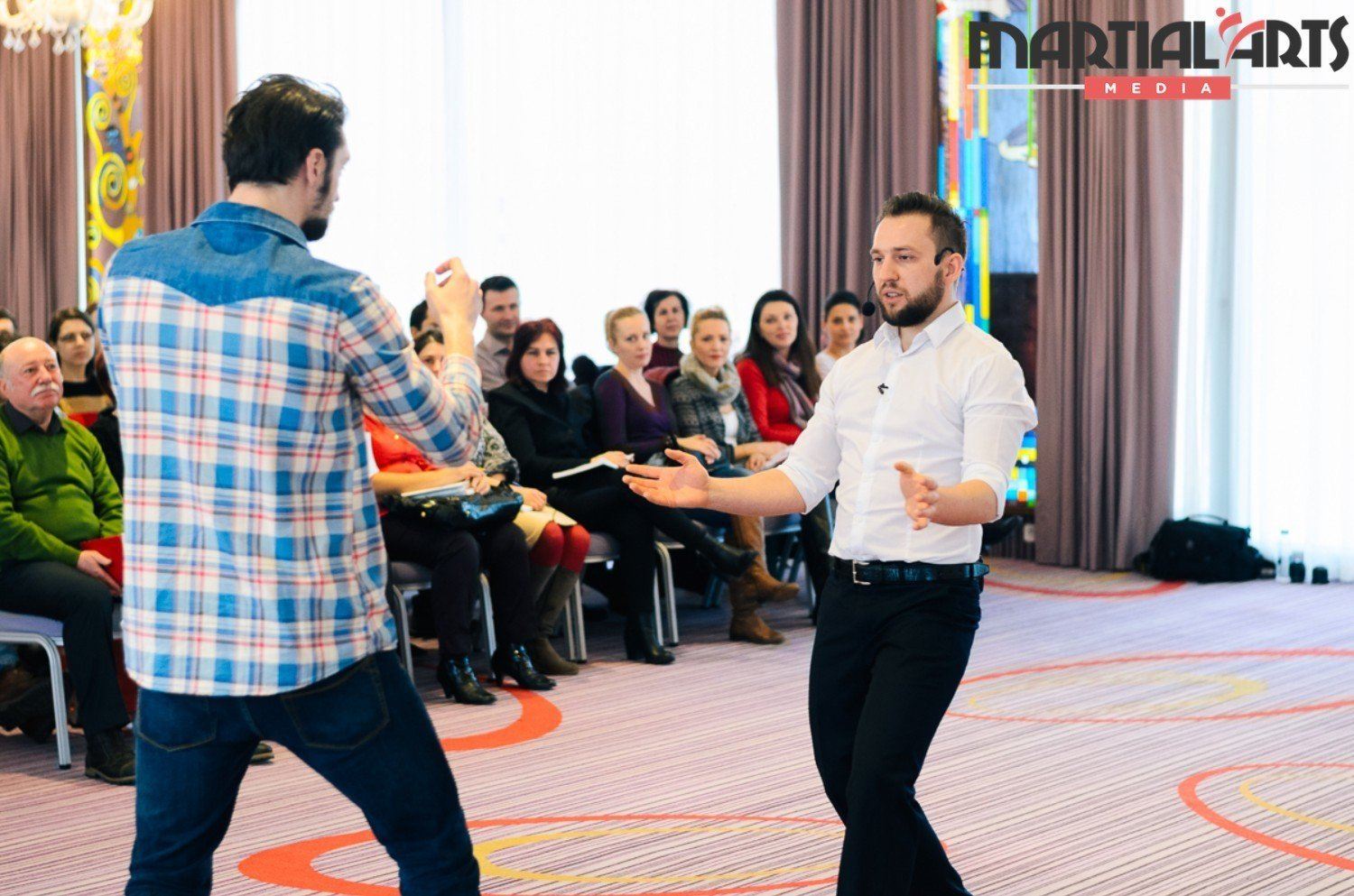
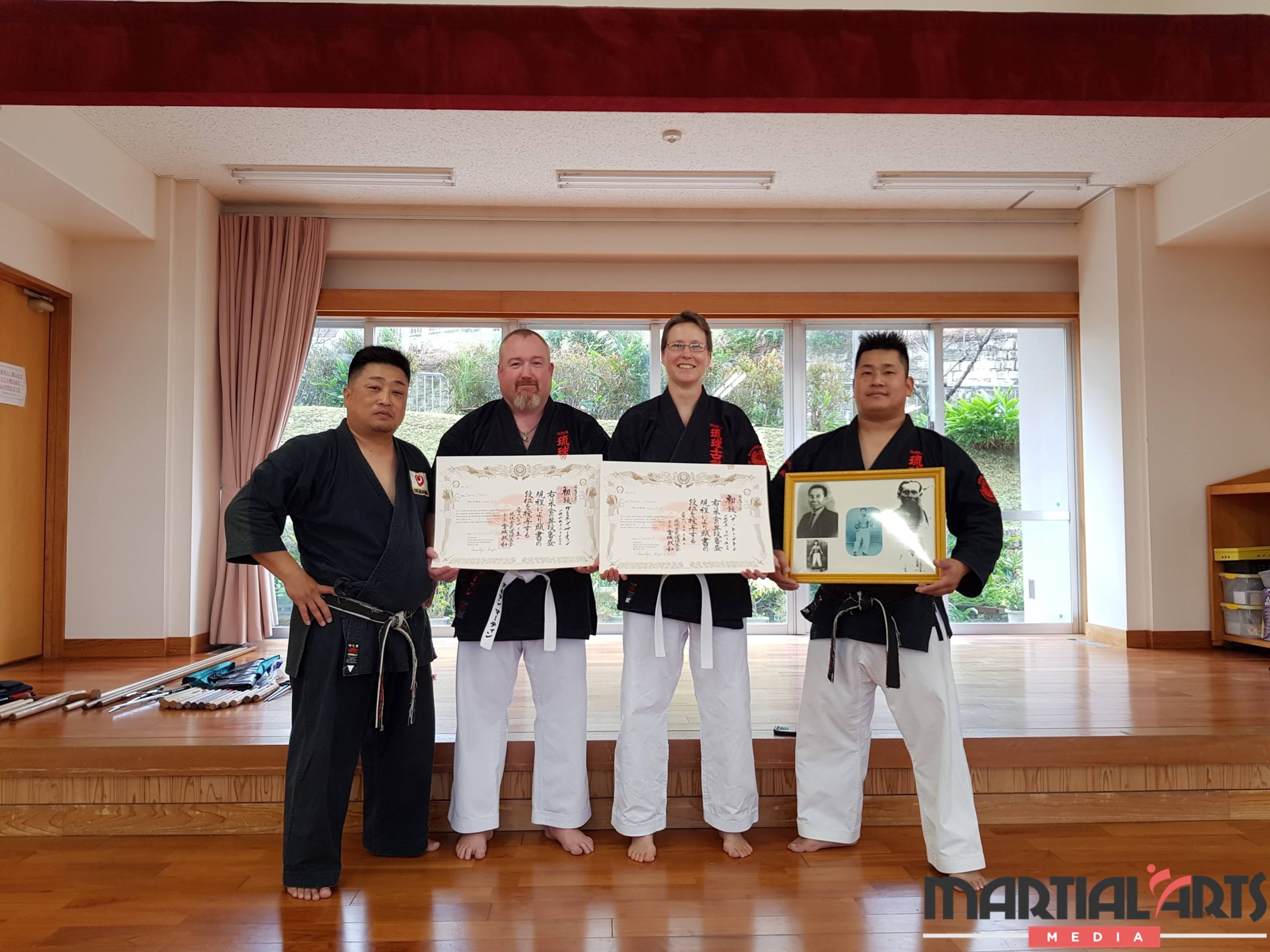
 DAMIEN
DAMIEN